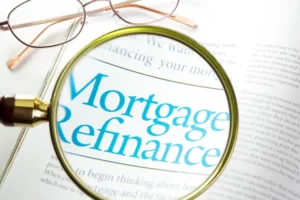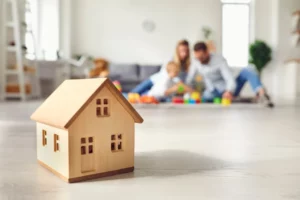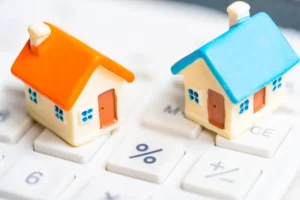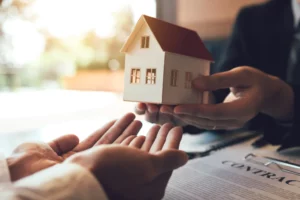With more seniors retiring each year with debt, a Reverse Mortgage is becoming a popular solution for retirees. And it doesn’t stop here. If you are 55 years of age, with a principle property you can access the equity in your home and turn it into tax free money.
Isn’t it time your home started paying you back?
With a Reverse Mortgage you can access your home equity up to 55% of the value of the property. You can receive this money either in a lump sum deposit or a top up to your monthly income, or a combination of both.

Whatever you wish to do with the funds you can use them at your discretion.
Aging seniors use it to modify their current home instead of downsizing and moving out of their beloved home.
Take the pressure off family for your care needs and stay in your home with home care coming in for your care.
And, you don’t make a payment.
The loan does not get repaid until the home is sold, even if a spouse passes away you remain in the home until it is sold.
So how can a No Payment Mortgage help you?
As you can see, whatever your needs are a Reverse Mortgage is a tool to provide you with a solution to your financing needs. Freeing up your cash flow and enjoying your retirement without sacrificing your lifestyle.
If you would like more information and a Free consultation with no commitment on your part contact me and lets get you started on a stress-free retirement.
Reverse Mortgage Explained
For more reverse mortgage information, refer to the following articles that shed more light into this unique mortgage product.
Reverse Mortgage Pros And Cons
A reverse mortgage is basically for seniors starting from the age of 55 years up. Over the years a reverse mortgage as a product gained bad reputation due to being misunderstood. A lot of myths and conceptions grew around it despite the many advantages and benefits it brings to our seniors.
Isn’t It Time Your Home Started Paying You Back?
A Reverse Mortgage is a mortgage product secured by a principle residence enabling the homeowner to access the equity of the home and not make traditional mortgage payments on the loan. 93% of Canadians want to age in place, in the home they love.
What a No Payment Mortgage Can Do for You
With more seniors retiring each year with debt, a Reverse Mortgage is becoming a popular solution for retirees. And it doesn’t stop here. If you are 55 years of age, with a principle property you can access the equity in your home and turn it into tax free money.
Helping Canadians Age in Place with a REVERSE Mortgage
Did you know 39% of Canadians or 44% of households are over the age of 55 and is the fastest growing demographic in Canada? There has never been a better time to get acquainted with the advantages of a Reverse Mortgage for your financing solutions.
Reverse Mortgage Questions
The following frequently asked questions about reverse mortgage facts will also help answer some of your unanswered questions.
How does a reverse mortgage work if you own your home?
If you already own your home reverse mortgage works by taking a part of your home equity and using it to pay off your current mortgage, assuming you do have one. Since you don’t have a mortgage debt to pay off, you’ll collect the whole loan proceeds if you buy your home free and simple.
What Is Reverse Mortgage?
A Reverse Mortgage is a loan product secured by a principle residence enabling the homeowner to access the equity of the home and not make traditional mortgage payments on the loan. According to a recent study, 93% of Canadians want to remain in their home as they age. Access to traditional lending becomes limited for seniors as the income isn’t always there to support the lender guidelines.
What happens when you sell your home with a reverse mortgage?
When you sell your home with a reverse mortgage the title company will send the required payoff amount to your reverse mortgage lender once your house has sold. Ascertain that the reverse mortgage loan is fully paid off with the proceeds and that your lender account is closed. Any extra money will be given to you.
Who is not eligible for a reverse mortgage?
You are not eligible for a reverse mortgage if you do not meet the minimum age requirement of 55 years of age, and if you do not own your principle residence with a fair amount of equity in it you will not be eligible for reverse mortgage. It doesn’t mean you won’t ever be eligible just means at this current time you are not eligible.
Are reverse mortgages transferable?
Reverse mortgages are not transferable and it usually belongs to one person or two married spouses. If one spouse dies but the surviving spouse is identified as a co-borrower on the reverse mortgage, the surviving spouse will stay in the house and the loan terms remain unchanged. Adult children and other nonspouse descendants, on the other hand, must pay off the debt when the last borrower dies. They have the option of keeping the house or selling it.
Can you get a reverse mortgage on a condo in Canada?
Another factor is the location of the property the type of dwelling on the property and the overall marketability of the property. So let’s start with the location of the property. The location of the property must be in an urban centre, it cannot be a rural property or an agricultural zoned property. It must be the applicants’ owner occupied principle residence and this can either be a single family home, an apartment style condo, a high rise condo or a town home.
What happens at end of reverse mortgage?
At the end of a reverse mortgage, the loan must be repaid when the last surviving borrower passes away. Most of heirs will sell the house to pay back the loan. The heirs will not have to pay more than 95% of the appraised value if the loan balance exceeds the value of your home.
Can a family member be added to a reverse mortgage?
Other family members such as your children even though they may be adults they are not eligible to apply for a reverse mortgage or be on title of your reverse mortgage if they do not meet the minimum age requirement of 55. If you happen to pass away and your property has a Reverse Mortgage on it and you have left your property to other family members, they will not be able to assume the Reverse Mortgage as they will not meet the required criteria at this time.
Can you lose your home with a reverse mortgage?
It is almost impossible to lose your home with a reverse mortgage since you borrow against your home’s equity and repay the loan with the proceeds of the sale. There aren’t many ways to lose ownership of a reverse mortgage because you still own your house, unless you fail to preserve three primary components of your home’s legal status.
Are there Closing Costs on a Reverse Mortgage?
Yes, there are closing costs on a reverse mortgage just like there are closing costs on a traditional mortgage or on a line of credit. The reason for this is the lender requires the borrower to have independent legal advice also known as ILA for their benefit and protection. This cost can vary depending on your location and the lawyer you choose, and the fee is approximately $500-$1000.
If you would like more information or a free consultation to see if a Reverse Mortgage is a fit for you, you can contact me below, and as a Certified Reverse Mortgage Specialist I would be more than happy to review your financing options with you and provide you with Expert Advice to Guide You Home.







